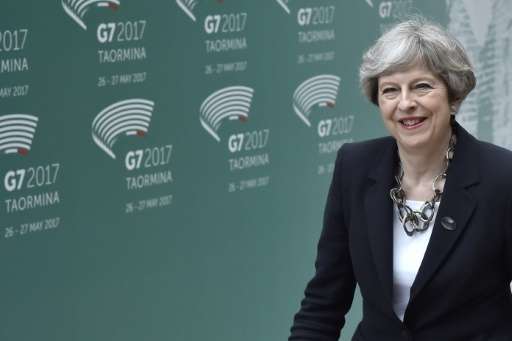G7 demands internet giants crack down on extremist content

The G7 nations on Friday demanded action from internet providers and social media firms against extremist content online, vowing to step up their fight against terrorism after the Manchester attack.
"The G7 calls for Communication Service Providers and social media companies to substantially increase their efforts to address terrorist content," Britain, the United States and their G7 partners said in a statement.
"We encourage industry to act urgently in developing and sharing new technology and tools to improve the automatic detection of content promoting incitement to violence, and we commit to supporting industry efforts in this vein including the proposed industry-led forum for combating online extremism," they said.
Elders at the Manchester mosque where the bomber sometimes worshipped have insisted that they preached a message of peace.
It has been suggested that he may well have been radicalised online by accessing content that is freely available from the likes of the Islamic State group.
"Make no mistake: the fight is moving from the battlefield to the internet," Prime Minister Theresa May told her G7 colleagues.
The G7 also vowed a collective effort to track down and prosecute foreign fighters dispersing from theatres of conflict such as Syria.
One prosecution was recently brought against such a fighter in Turkey, and Britain now wants help from local authorities for more prosecutions in Lebanon, Jordan and Iraq, a British government spokesperson said as the G7 countries met in Sicily.
The stepped-up cooperation comes amid fears that the Manchester bomber had been to Syria after visiting his parents' homeland of Libya.
"It is vital we do more to cooperate with our partners in the region to step up returns and prosecutions of foreign fighters," May said as she chaired a discussion on counter-terrorism in the Sicilian resort of Taormina.
"This means improving intelligence-sharing, evidence gathering and bolstering countries' police and legal processes."
European authorities are increasingly concerned about the threat posed by foreign fighters who went to join the Islamic State group but are now dispersing as the group comes under pressure on the battlefield.
According to a senior British government source, May urged the G7 countries to share police expertise and border security methods with countries where foreign fighters travel through or fight in.
Names and nationalities of foreign fighters should be shared to help their identification by different countries as they cross borders.
"When our allies find evidence, such as video or papers, of illegal activity involving foreign fighters, for example a Brit in a conflict zone, they should pass that to our authorities. It may help prosecute foreign fighters when they return," the source said.
© 2017 AFP


















